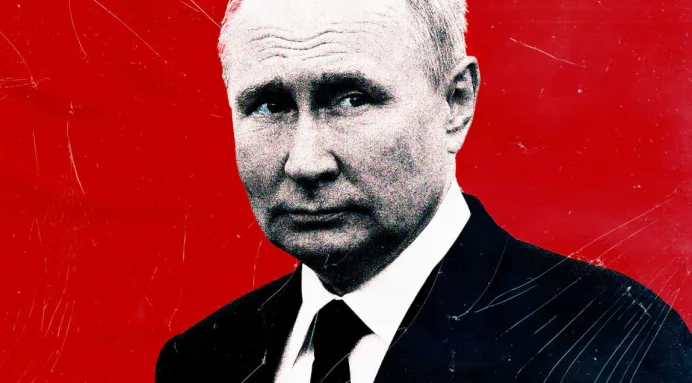Putin’s latest ban on oil sales could backfire on Russia, experts predict

close video Russia bans oil sales to countries with price caps
Canary CEO Dan Eberhart discusses the rise in U.S. gas prices and Russia banning oil sales to countries with prices caps, arguing the initiative is Putin ‘playing semantics.’
Russian President Vladimir Putin announced bans on oil sales to Western nations abiding by $60-per-barrel price caps, raising concerns that the move could lead to further price increases going into next year.
FOX Business' Lauren Simonetti said the plan could backfire on Putin, alluding to analysts who called his move a "miscalculation."
"[The price of oil] is not moving much. It's down about a quarter right now," she said early Wednesday, adding, "Analysts do say banning oil to countries that do abide by the $60 price cap would be a miscalculation by Putin."
"He's assuming he's going to get higher prices, but from how many countries?" she posited.
US EMERGENCY OIL RESERVES DROP TO LOWEST LEVEL SINCE 1983 AS GAS PRICES CLIMB
Russian President Vladimir Putin attends a meeting with young award-winning culture professionals via video conference in Moscow on March 25, 2022. (Mikhail Klimentyev, Sputnik, Kremlin Pool Photo via AP, file / AP Images)
The ban, announced Tuesday, is set to go into effect Feb. 1, 2023, and will impact several nations — including Australia, Canada, Japan, the U.K., the U.S. and nations within the European Union — for five months.
GAS PRICES COULD RISE BACK TO $4 PER GALLON AS EARLY AS MAY 2023, GASBUDDY SAYS
Canary CEO Dan Eberhart chimed in on how Putin's policy could impact those living in affected nations Wednesday, telling "Varney & Co." guest host Ashley Webster that he predicts the ban will have little effect on Americans' wallets.
"I think this is a big nothingburger, and it's Putin playing semantics," he said.
Eberhart echoed Simonetti's statement that the ban could backfire on Russia, adding that he believes policy will negatively impact Putin more than the U.S.
Vladimir Putin enacted a ban on oil sales to several Western nations, including the U.S., on Tuesday. (istock / iStock)
"The price cap of $60 was really set at a level that the West didn't think would push up prices too much, and the Eastern Europeans really wanted a much, much steeper price cap at around $30… what really matters to Russia is that China, India and South Africa keep buying their oil, and I don't think this affects that," he said.
Eberhart, addressing Webster's question about possible gas price hikes in 2023, said he predicts prices will climb as long as the economy "holds up," but added that the issue relies more on domestic and Middle Eastern energy supplies rather than imports from Russia.
RUSSIA'S GAS PRODUCTION, EXPORTS SHRINK FROM SANCTIONS PRESSURE: REPORT
A nozzle pumps gasoline into a vehicle at a gas station in Los Angeles on Oct. 5, 2022. (FREDERIC J. BROWN/AFP via Getty Images / Getty Images)
"The [Biden] administration really has a chilling policy on drilling for more oil in the U.S… we've moved from being energy independent under the Trump administration to begging Venezuela and OPEC+ — particularly Saudi Arabia — for more oil here in 2022 and going into 2023," he added.
GET FOX BUSINESS ON THE GO BY CLICKING HERE
Another dismal outlook for the oil market comes with China's economic reawakening after longstanding COVID-19 shutdowns and quarantine protocols that suppressed the economy over the last two years.
Eberhart, who noted the 12% decrease in China's oil demand year-over-year, said prices could move much higher if the country's demand increases pressure on the supply. close video White House begins plan to refill emergency oil reserves
King Operating Corporation founder and CEO Jay Young discusses the rise in oil prices as the White House looks to refill U.S. strategic petroleum reserves.


